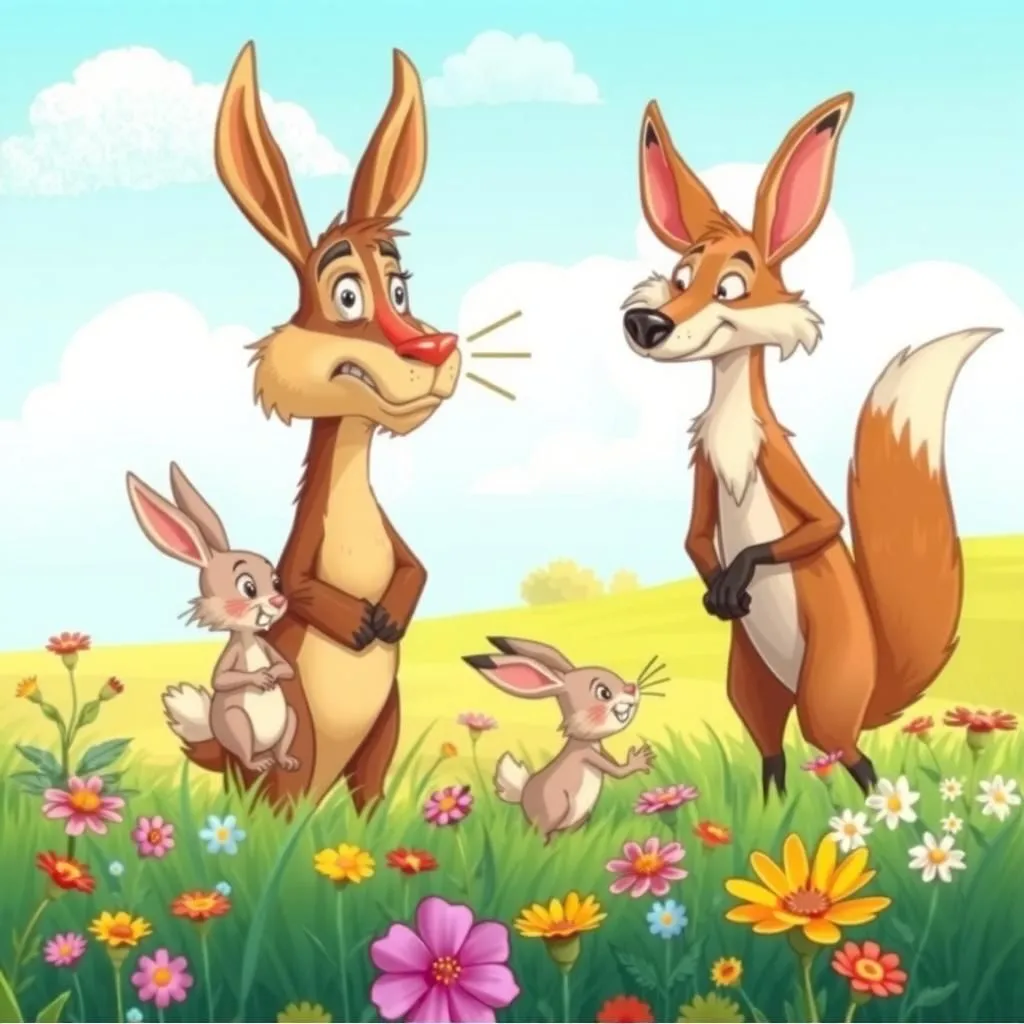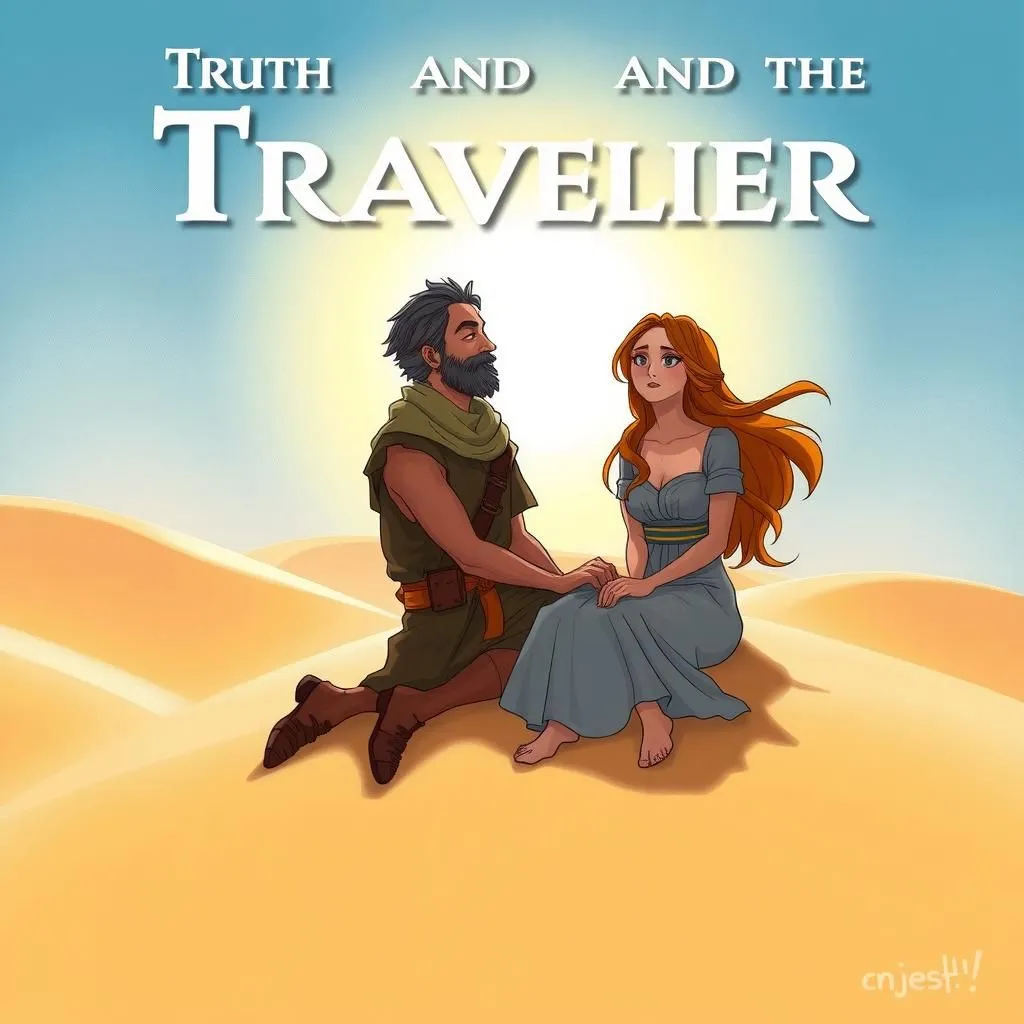
A Transposition
In this humorous story with a moral, a Jackass and a rabbit engage in a debate over their sizes, each convinced the other is larger in their category. Seeking resolution, they turn to a clever Coyote who diplomatically affirms their claims, illustrating the folly of their misidentifications. Pleased with his wisdom, they decide to support him for a leadership position, leaving the outcome uncertain but highlighting a life-changing lesson on perspective and self-awareness.


